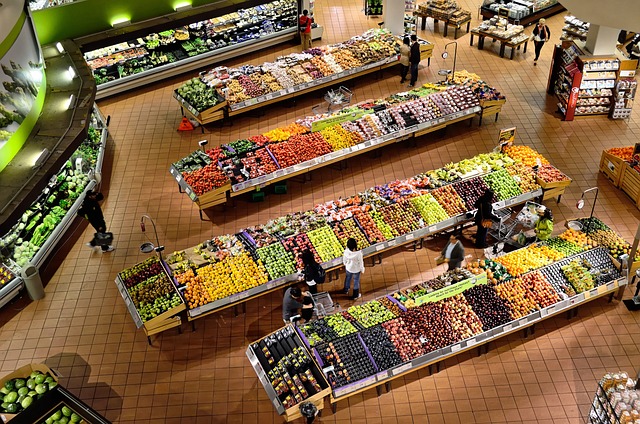Introduction
If you’re proactive about your health, you’ve probably heard about probiotics. Probiotics are live bacteria and yeasts that live in your gut and are known to have a wide range of health benefits. Many people take probiotic supplements as a way to keep their gut bacteria balanced. However, you don’t need supplements to get your dose of probiotics. There are many delicious foods from around the world that are naturally rich in probiotics. In this blog, we’ll take you on a tour of these foods.
Kefir
Kefir is a fermented milk drink that originated in the Caucasus Mountains. It’s made by adding kefir grains to milk and letting it ferment for up to 24 hours. The kefir grains are a combination of bacteria and yeasts that create a creamy, tangy sourness. Kefir is packed with probiotics, particularly lactobacilli and bifidobacteria, which are known to have a positive impact on gut health. Kefir is also a good source of protein and calcium.
Tempeh
Tempeh is a traditional Indonesian food made from fermented soybeans. It’s made by mixing cooked soybeans with a culture starter, which is usually a mixture of live moulds such as rhizopus oligosporus. The mixture is then left to ferment for 24-48 hours, creating a solid block of tempeh. Tempeh is rich in probiotics, which are essential for maintaining gut health. It’s also low in fat and is a good source of protein, making it an excellent addition to vegetarian and vegan diets.
Miso
Miso is a traditional Japanese seasoning made from fermented soybeans. It’s made by mixing soybeans, koji (a type of fungus), and salt, and allowing the mixture to ferment for several months. The resulting paste is used as a base for soups, marinades, and sauces. Miso is a probiotic-rich food that has been shown to boost gut health and improve digestion. It’s also a good source of vitamins and minerals, making it a healthy addition to any diet.
Sauerkraut
Sauerkraut is a popular German dish made from fermented cabbage. The cabbage is chopped into small pieces, salted, and then packed tightly in a jar or crock. The cabbage is left to ferment for several days or weeks until it becomes tangy and sour. Sauerkraut is a great source of probiotics, particularly lactobacilli, which help to maintain gut health. It’s also a good source of vitamin C and is low in calories, making it a healthy addition to any meal.
Kimchi
Kimchi is a traditional Korean dish made from fermented vegetables, most commonly cabbage. The cabbage is chopped, salted, and then mixed with a variety of seasonings, including garlic, ginger, and red pepper flakes. The mixture is then left to ferment for several days or weeks, creating a spicy, tangy, and probiotic-rich dish. Kimchi is known to have a number of health benefits, including boosting gut health and aiding digestion. It’s also low in calories and high in vitamins and minerals.
Kombucha
Kombucha is a fermented tea drink that originated in China over 2,000 years ago. It’s made by fermenting sweetened tea with a symbiotic culture of bacteria and yeasts, creating a fizzy, slightly sour drink. Kombucha is packed with probiotics, particularly acetic acid bacteria, which help to maintain gut health. It’s also a good source of antioxidants, which can help to protect against cellular damage. Kombucha is a popular health drink and is widely available in health food stores and supermarkets.
Conclusion
Probiotics are essential for maintaining a healthy gut and improving overall health. While many people turn to supplements to get their dose of probiotics, there are many delicious foods from around the world that are naturally rich in these beneficial bacteria. From kefir to kimchi, these probiotic-rich foods are not only delicious but also offer numerous health benefits. So why not add some of these fermented foods to your diet today and reap the rewards of a healthier gut?







